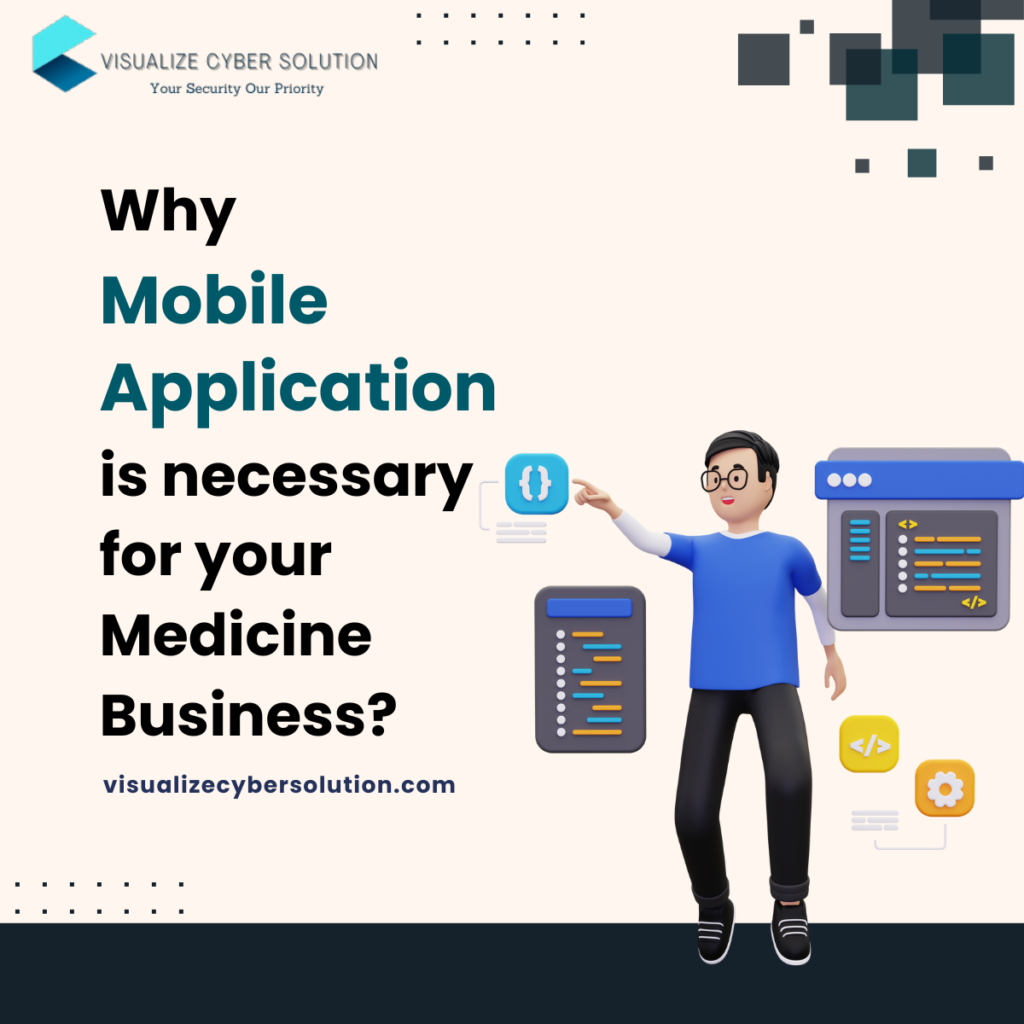
Empowering Healthcare: The Essential Role of Mobile Applications by Visualize Cyber Solutions
In the era of digital health, where accessibility, patient engagement, and seamless communication are paramount, mobile applications have emerged as a transformative tool for the medical industry. Healthcare businesses are harnessing the power of mobile apps to revolutionize patient care, streamline operations, and enhance the overall healthcare experience. In this blog, we’ll delve into why mobile applications are indispensable for medical businesses and how they’re shaping the future of healthcare.
Catalyzing Healthcare Excellence through Mobile Applications
As healthcare organizations embrace digital technologies to provide better patient care and optimize operations, mobile applications offer a platform that enhances patient engagement, remote monitoring, and efficient communication.
1. Enhanced Patient Engagement
Mobile apps empower patients to take a proactive role in their health management. Patients can access medical records, appointment schedules, and medication reminders, leading to better adherence and improved health outcomes.
2. Remote Patient Monitoring
Mobile apps enable healthcare providers to remotely monitor patient vital signs, health metrics, and chronic conditions. This real-time data collection allows for timely interventions and proactive healthcare management.
3. Telemedicine and Virtual Consultations
Mobile apps facilitate telemedicine platforms, enabling patients to have virtual consultations with healthcare professionals. This technology expands access to healthcare services, especially in remote areas.
4. Appointment Scheduling
Mobile apps allow patients to schedule appointments, receive reminders, and even conduct virtual check-ins. This streamlines the appointment process, reducing wait times and enhancing patient satisfaction.
5. Prescription Management
Mobile apps offer a platform for patients to access their prescriptions, order refills, and receive dosage reminders. This leads to better medication adherence and reduces the risk of missed doses.
6. Efficient Communication
Mobile apps enable seamless communication between patients and healthcare providers. Patients can ask questions, share information, and receive medical advice, enhancing patient-provider relationships.
7. Health Tracking and Wellness
Mobile apps include features for tracking physical activity, sleep patterns, and nutrition. These apps promote healthy lifestyles and enable healthcare providers to offer personalized wellness recommendations.
In conclusion, mobile applications are transforming the healthcare industry by providing a platform that enhances patient engagement, remote monitoring, and efficient communication. From enhanced patient engagement to streamlined appointment scheduling and telemedicine solutions, mobile apps empower medical businesses to excel in an era of digital transformation. By embracing mobile technology, healthcare organizations can optimize patient care, improve operational efficiency, and contribute to the advancement of healthcare practices in the digital age.
#HealthTech #MobileAppsInHealthcare #DigitalHealth #Telemedicine #PatientEngagement #HealthcareInnovation #RemotePatientMonitoring #HealthcareTechnology #VisualizeCyberSolutions #LifeatVCS


